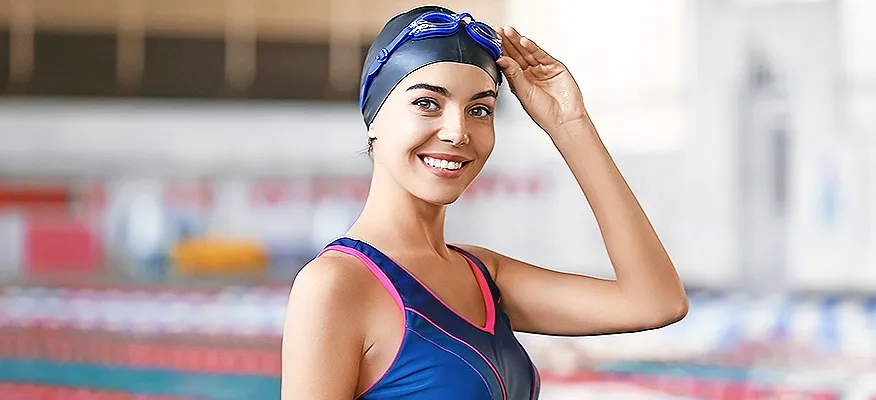Does Swimming Affect Your Vaginal Health?
- Por Dr. Burtseva Tamara Viktorivna
- 24 Feb 2025
- Verificado por Dr. Iunis Galina Ivanovna

Puntos clave
- Wash away pool chemicals and salt to maintain a healthy vaginal balance.
- Change out of wet swimsuits promptly to prevent irritation or infections.
- Opt for breathable, quick-drying materials to reduce friction and dampness.
- Drinking water supports overall health, including vaginal moisture.
- If you notice unusual irritation or discharge after swimming, consult a doctor.
Califica nuestro articulo
Nos encantaria saberlo!
- 0
- 0
- 0
- 0
Preguntas frecuentes
Obtenga la información que necesita.
Chlorine can disrupt the vaginal microbiome, but infections are rare if you rinse off and change into dry clothes promptly.
Saltwater is less likely to disrupt the vaginal pH than chlorine, but it may still cause dryness if exposure is prolonged.
Change out of wet swimsuits, rinse off, and avoid sitting in damp clothing for long periods.
It is best to consult your doctor, but swimming itself won’t worsen the infection if you follow proper hygiene.
Yes, tampons are safe and effective for swimming. Change them immediately after swimming to prevent moisture retention.
Choose breathable, quick-drying swimsuits made from materials like nylon or spandex.
Prolonged exposure to pool water might alter the vaginal pH, but rinsing off after swimming typically prevents odors.
If you experience persistent itching, burning, or unusual discharge after swimming, consult a healthcare provider.
¿Cómo fue la experiencia con el artículo?
Nos encantaria saberlo!